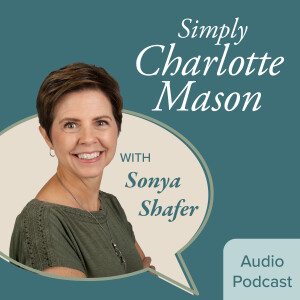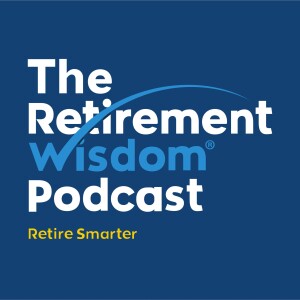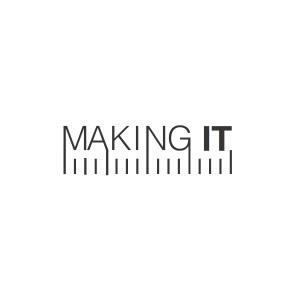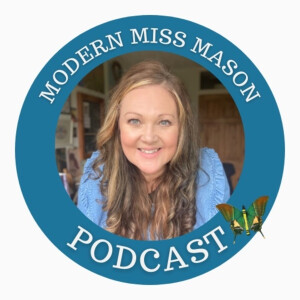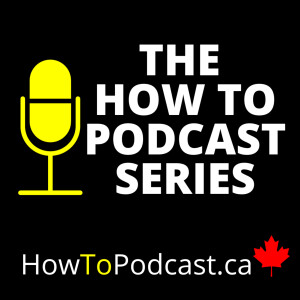

The How To Podcast Series - Revolving Guest Co-Hosts, Podcast Tips and A Community for Podcasters
https://anchor.fm/s/83dfe46c/podcast/rssEpisode List

Committed to the Mic - How Consistency Creates Community - The Daily Dave - Podcasting Tips
The Daily Dave - Podcasting Tips - Committed to the Mic - How Consistency Creates CommunityFriedrich Nietzsche’s phrase “a long obedience in the same direction” speaks to the power of sustained commitment over time. For podcasters, this idea is especially relevant. Building a successful show isn’t about quick wins or overnight fame—it’s about dedication to your craft, your content, and your community, even when progress feels slow.Consistently showing up—episode after episode—demonstrates a deep commitment to your audience. It means investing in your growth as a host, refining your message, and nurturing the trust of your listeners. Over time, this steady perseverance creates a rich archive of content, a loyal community, and a reputation for reliability.Podcasting rewards those who persist, who keep creating and connecting, even when the results aren’t immediate. Nietzsche’s wisdom reminds us that lasting impact comes from staying the course, embracing the journey, and honoring the promise you make to yourself and your listeners with every new episode.____https://howtopodcast.ca/
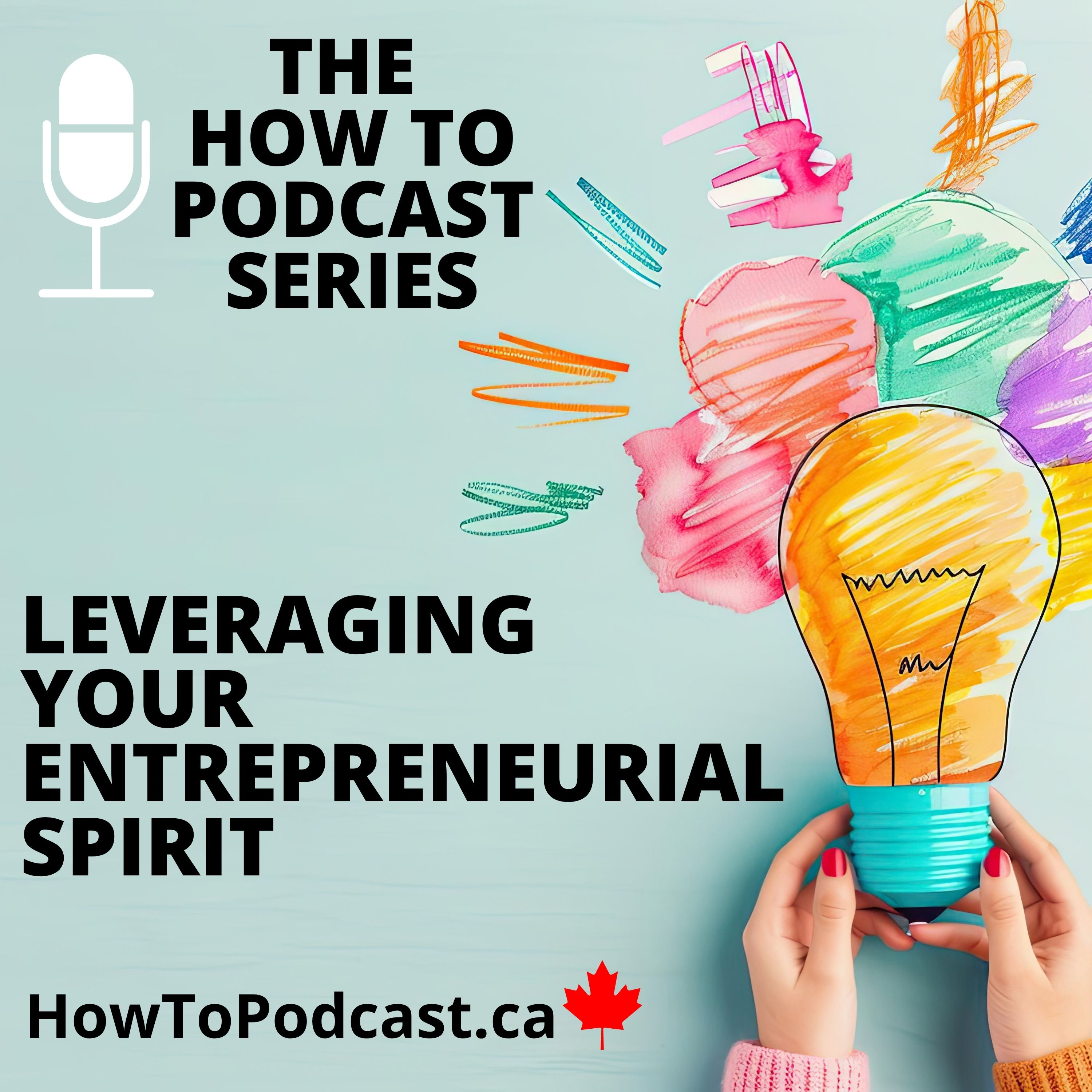
E450 - Leveraging Your Entrepreneurial Spirit - Part seven - Resourceful, Doing More with Less
Episode 450 - Leveraging Your Entrepreneurial Spirit - Part seven - Resourceful, Doing More with Less Podcasting, by nature, often involves managing limited time, budgets, and even technical expertise — especially in the early days. Yet, some of the most successful creators have thrived not because of what they had, but how creatively they used what was available. By cultivating a resourceful, entrepreneurial spirit, podcasters can punch above their weight and create meaningful impact, even with modest resources.Bootstrapping Stories & StrategiesStart Where You Are: Many beloved podcasts began with nothing more than a smartphone and free editing software. Share examples from your journey or others' about starting scrappy—highlighting how constraints can spark unique ideas.Minimum Viable Podcast: Focus on launching with what you need most: clear value, compelling content, and an authentic voice. Fancy gear and polished production can come later; don’t let perfectionism slow you down.The Importance of Networking and BarteringCollaboration Over Competition: Leverage your network. Invite guests who can cross-promote, swap editing or design services with other creators, or exchange ad spots.Bartering Assets: Think beyond cash—maybe you design graphics for another podcaster in exchange for show notes, or swap social shares. This not only grows your audience but builds genuine community (and episodes for future “how we did it” case studies).Tools and Hacks for Maximizing Limited BudgetsRecommendation Roundups: Use affordable or free tools like Audacity (editing), Zencastr (remote recording), or Canva (artwork). Do regular episodes where you share your best budget hacks—listeners love actionable, low-cost advice.DIY Solutions: Teach your audience how you handle recording in noisy environments, make a home pop-filter, or use public domain music. These quick, practical hacks provide immediate value.Case Studies of Resourcefulness in ActionSpotlight Success Stories: Interview indie podcasters who achieved significant growth without big sponsors or studios. Explore how their creativity compensated for lack of resources, such as marketing with guerilla tactics, grassroot campaigns, or leveraging loyal fans.Your Own Lessons Learned: Transparently share what’s worked—and what hasn’t. Authenticity around resource struggles builds trust and relatability with your audience.An entrepreneurial spirit isn’t just for business founders. For podcasters, it means:Proactively seeking opportunities (guest spots, collaborations)Embracing experimentation (try new formats or segments)Seeing setbacks as stepping stones (turn tech failures or no-shows into unique episode topics)Continual improvement (iterating on listener feedback, updating processes)People with this mindset are adaptable, resilient, and purpose-driven. They build loyal communities, evolve fast, and inspire others to create—even when the odds seem stacked.Bottom Line:Resourcefulness is your superpower. It fosters creativity, builds resilience, and earns you a reputation as a problem-solver and innovator in the space. Lean in to doing more with less, and empower your audience—fellow podcasters—to do the same.Actionable Prompt for Podcasters:Challenge yourself to create a “zero budget” episode—share the process and lessons learned with your listeners.Host a roundtable with creators about their best resourceful hacks.Encourage your community to share their own stories of podcasting ingenuity, building a supportive collective spirit.Remember: Limitations aren’t roadblocks; they’re launchpads for creativity and community growth.Key Takeaways for Podcast CreatorsThe Entrepreneurial Spirit: The Mindset for Podcasters___https://howtopodcast.ca/
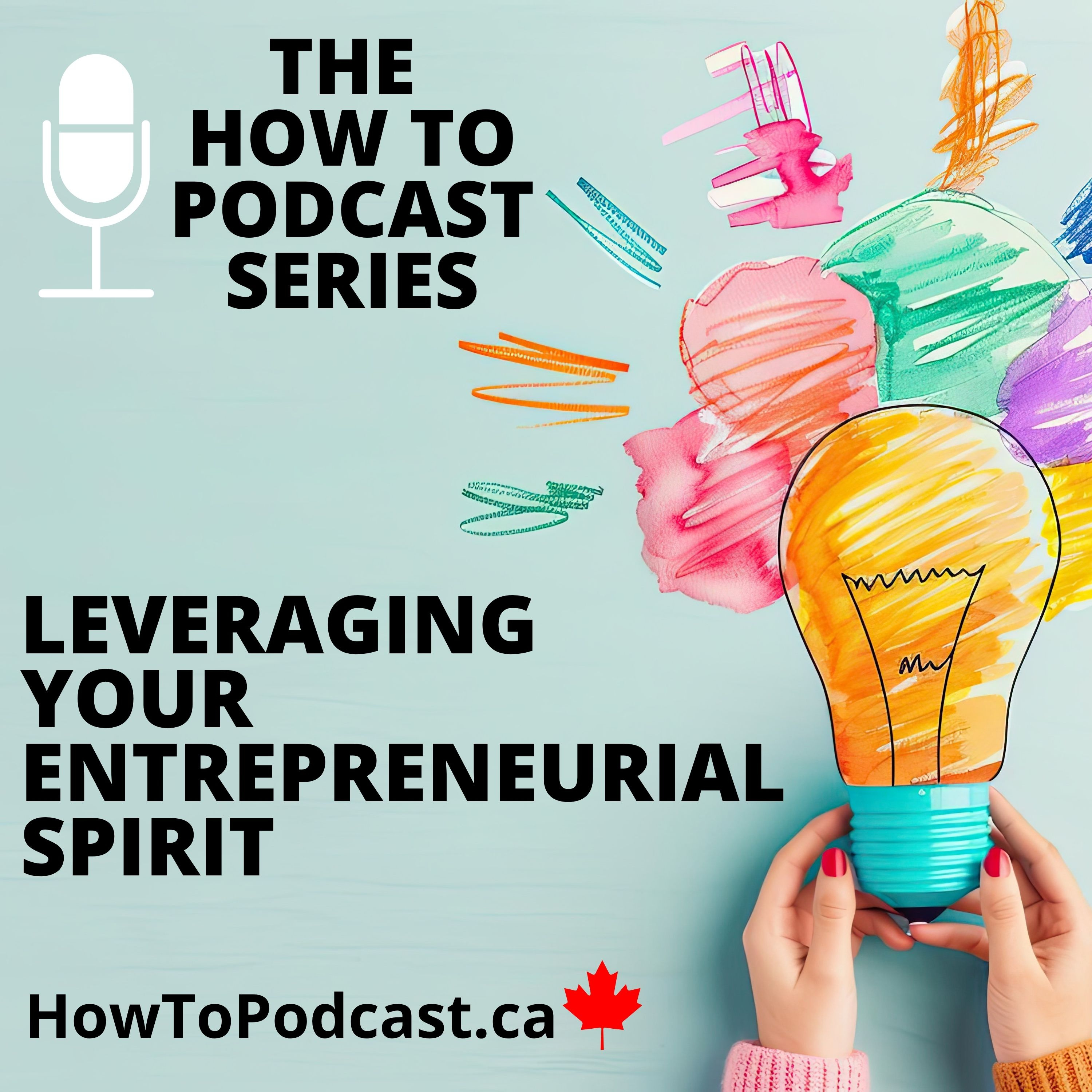
E451 - Leveraging Your Entrepreneurial Spirit - Part eight - Critical Thinkers - Analyzing and Evaluating
Episode 451 - Leveraging Your Entrepreneurial Spirit - Part eight - Critical Thinkers - Analyzing and EvaluatingPodcast creators and hosts can boost their show's quality and reputation by integrating critical thinking into every aspect of production. Critical thinking—as modeled by entrepreneurs—means not accepting information at face value, consistently questioning, analyzing, and seeking ways to improve. For podcasters, this mindset translates to creating richer content, making sharper editorial choices, and engaging audiences in ways that foster loyalty and trust.Key Context for Podcasters: An entrepreneurial spirit emphasizes adaptability, resilience, curiosity, and a drive to improve—qualities that help podcasts evolve and stay relevant.Critical thinking is a learnable skill that, when practiced, results in better questioning, research, content curation, and engagement strategiesPractical Approaches & Takeaways:Develop Critical Thinking Skills:During research, question your own assumptions and the validity of your sources. Don’t simply script or record with surface-level facts—dig deeper for nuance and reliabilityActively seek out and feature diverse perspectives, especially those that challenge your bias or dominant narratives in your nicheSkepticism & Curiosity:Treat each episode as an investigation. Approach topics like an entrepreneur: What don’t you know? What could be a more compelling angle? This skepticism drives higher-quality interviews, discussions, and solo episodesUse curiosity to frame your questions and keep listeners engaged—curious hosts model this trait for their audience.Evaluating Opportunities & Avoiding Scams:Be analytical about guest pitches, sponsorships, and collaborations. Carefully vet the credentials of potential guests, scrutinize ad or partnership offers, and protect your show’s brand by avoiding questionable associations—much as entrepreneurs scrutinize business dealsScenario planning is vital: “If I accept this guest or sponsor, what are the potential upsides and downsides? What might listeners perceive?”Sharpening Analysis & Judgment:Regularly reflect on your own podcasts: What worked? What could have been deeper or more balanced? Encourage constructive listener feedback and treat it as data for continual improvementUse exercises such as “fact vs. opinion,” rehearsing “steel man” arguments (representing opposing or alternative views as strongly as possible), and scenario mapping to diversify your thinking and decision-making processesPromoting Critical Thought in Your Audience:Ask your listeners open-ended questions or encourage them to question sources.Model critical thinking explicitly—explain your process when vetting guests, sources, or ideas, so your listeners become savvier media consumersKey Takeaways:Treat each stage of your podcast (topic selection, research, scripting, interviewing, editing, promotion) as an opportunity to question assumptions, analyze options, and reflect on outcomes—the core of critical thinkingIntentional skepticism, research rigor, and scenario planning will improve the depth, accuracy, and credibility of your content, setting your podcast apart in a crowded fieldBy modeling these skills for your listeners, you not only elevate your own show but also help build a more thoughtful, engaged podcast communityPodcasters who apply these principles won’t just deliver information—they’ll cultivate richer, more trustworthy conversations that inspire growth, loyalty, and learning in both themselves and their audience.____https://howtopodcast.ca/

Marketing Your Podcast - Why Perspective Is Everything - The Daily Dave - Podcasting Tips
The Daily Dave - Podcasting Tips - Marketing Your Podcast - Why Perspective Is EverythingIn this episode, we look at the crucial role that perspective and audience opinion play in marketing your podcast effectively. Marketing isn’t just about promotion—it’s about shaping how your podcast is perceived and connecting authentically with your listeners. Whether you’re just starting or looking to grow your audience, understanding the power of perspective will transform your podcast marketing approach.____https://howtopodcast.ca/
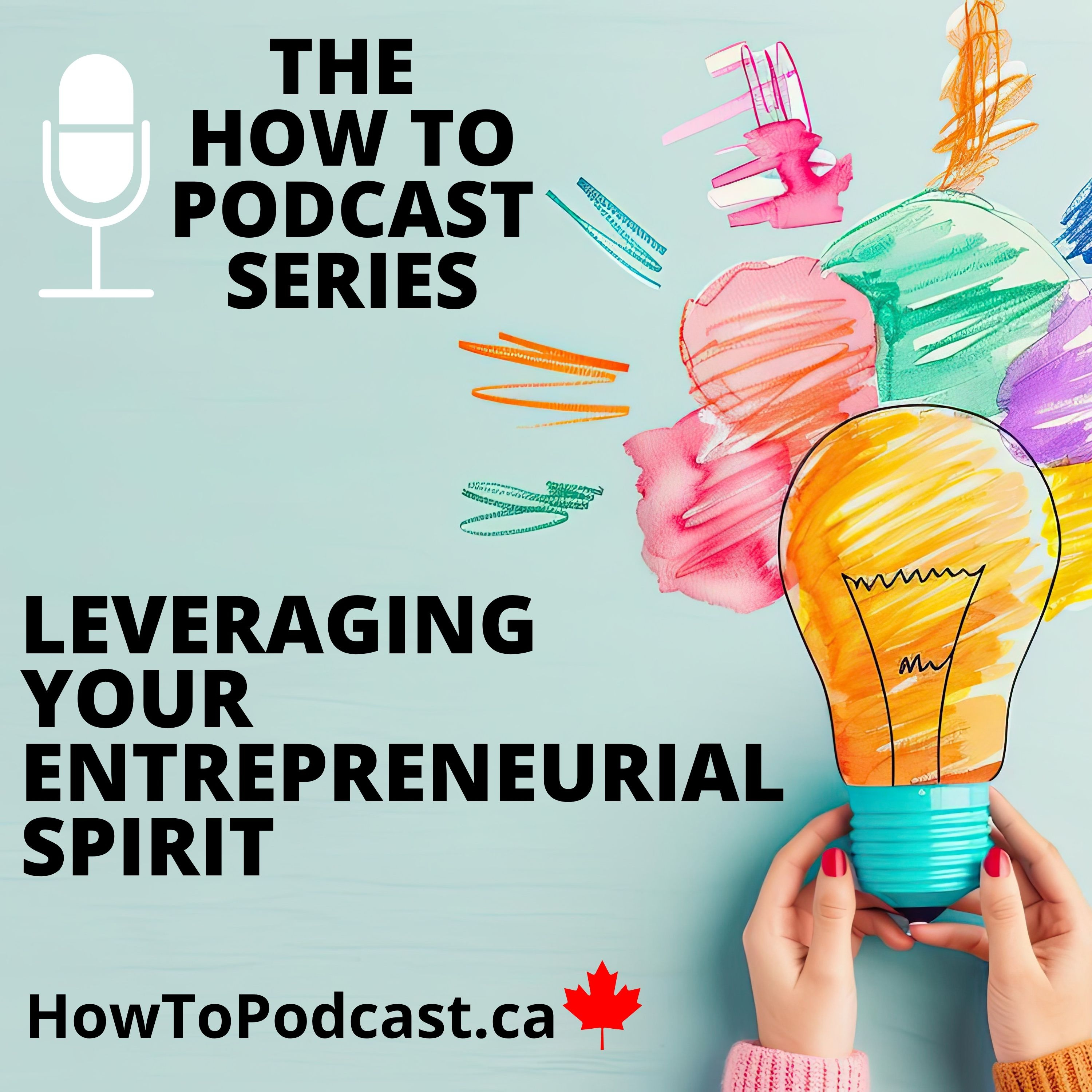
E449 - Leveraging Your Entrepreneurial Spirit - Part six - Ambitious Dreamers - Visionaries for a Better Future
Episode 449 - Leveraging Your Entrepreneurial Spirit - Part six - Ambitious Dreamers - Visionaries for a Better FutureFor podcast content creators and hosts aiming to infuse an entrepreneurial mindset into their show, the idea that entrepreneurs are dissatisfied with “good enough” and see possibilities where others see limits offers powerful, actionable direction. Here’s expanded context and tailored takeaways to apply this theme to your podcasting journey:Successful entrepreneur-focused podcasts—like "How I Built This" or "StartUp"—commonly highlight how visionary thinkers challenge “good enough,” aim higher, and persistently turn big ideas into reality. Listening to these shows reveals that the journey from vision to execution involves vulnerability, course corrections, and creative problem-solvingKey Takeaways for Podcast Creators/Hosts1. Cultivate and Clarify Your VisionBe dissatisfied with “good enough” in your podcast. Regularly ask: Where can my show improve? What’s possible if I look beyond the current format or topics?Share your growth journey with listeners—this transparency builds trust and inspires them to adopt similar mindsets in their own creative lives2. Balance Big Dreams with Practical StepsOutline both ambitious goals (e.g., doubling your audience, landing high-profile guests) and realistic actions (e.g., weekly networking, improving editing skills).Dedicate an episode to breaking down big visions into actionable steps, helping your audience see how dreams become plans, and plans become results3. Use Vision Boarding and Future PlanningShow how creative tools like vision boards or future-self journaling apply to podcasting: map out your ideal guest list, partnerships, or community impact.Invite listeners, or even guests, to share their vision boards or future podcast plans in a community segment, reinforcing a growth-oriented culture.4. Interview Visionary Founders and InnovatorsRegularly feature guests who embody this limit-pushing mindset—founders, creators, or even other podcasters who started from scratch and achieved something exceptional.Focus your interviews on their decision-making: What made them dissatisfied with average? How did they spot possibilities others missed? These stories will inspire your audience to look for hidden potential in their own projects.5. Make Setbacks and Pivots Part of Your ContentShare honest stories (yours or others’) about failed ideas, rejected pitches, or technical hiccups—then describe what was learned and how those hurdles led to growth.This not only builds relatability but also reframes challenges as opportunities—core to the entrepreneurial mindsetPractical Application TipsEncourage iteration: Treat your podcast as a living project, always evolving.Foster a learning community: Create spaces (like Q&A episodes, roundtables, or online forums) where listeners can share their own visions and growth stories, reinforcing the value of risk-taking and innovation.Highlight actionable lessons: After every guest or solo episode, recap a few practical ways your audience can think bigger and act boldly in their own contexts.By weaving these principles into your podcast, you’ll not only model the entrepreneurial mindset but also actively help your audience unlock their creative, “never settle,” possibility-focused potential.____https://howtopodcast.ca/
You may also like
Create Your Podcast In Minutes
- Full-featured podcast site
- Unlimited storage and bandwidth
- Comprehensive podcast stats
- Distribute to Apple Podcasts, Spotify, and more
- Make money with your podcast





